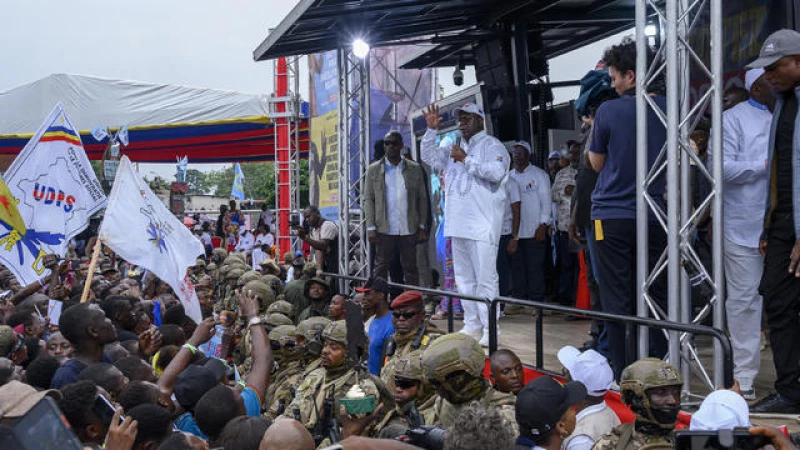The Democratic Republic of Congo's Cobalt Dominance
If you own a smartphone, laptop, tablet, or an electric car, chances are that your device is powered by cobalt, a mineral predominantly mined in the Democratic Republic of Congo (DRC). With approximately 70% of the world's cobalt supply originating from the southern region of the DRC, the demand for this vital metal is only expected to increase as electric vehicle sales surge and e-technology remains popular.
Cobalt plays a crucial role in lithium-ion batteries, which are used in most electric devices and vehicles to prevent the risk of fire. As the demand for cobalt rises, so does its price, making it one of the most sought-after minerals for major tech companies worldwide.
Experts estimate that the DRC's soil contains around 3.7 million tons of cobalt, accounting for nearly half of the world's supply. Business intelligence firm GlobalEdge speculates that the untapped raw mineral deposits in the DRC could be valued at over $24 trillion.
- CBS News finds children mining cobalt for batteries in the Congo
Despite the Democratic Republic of Congo's vast reserves of valuable minerals such as copper, cobalt, gold, manganese, uranium, and platinum, over 60% of the Congolese population lives below the poverty line. The country's Finance Minister recently announced that the national inflation rate is just over 20%, surpassing the struggling economies of Europe.
Upcoming DRC Election Expected to Maintain the Status Quo
On Wednesday, the Democratic Republic of Congo (DRC) will hold an election, where President Etienne Tshisekedi will be seeking a second and final 5-year term to lead the country. Despite facing more than two dozen election rivals, analysts predict that Tshisekedi will emerge as the winner.
Tshisekedi was elected in 2019 with promises of advocating for peace and combating corruption. However, little progress has been made in improving the lives of the Congolese citizens or resolving the ongoing conflicts in the DRC. The country's national army, which is often unpaid and undisciplined, has struggled to control the approximately 120 rival militias vying for power, particularly in the mineral-rich southern region.
Analysts estimate that more than 6 million people, out of the DRC's total population of 100 million, have lost their lives during three decades of fighting. The violence has also resulted in the displacement of millions of people, with the United Nations' World Food Program warning that it only has enough food to feed half of the 6.3 million individuals facing hunger in the DRC.
China's Dominance in the DRC's Mineral Industry
For centuries, the Democratic Republic of Congo (DRC) has been a major producer of copper. In recent years, cobalt, a by-product of copper production, has also gained significant importance. Previously, American companies held ownership of several cobalt mines in the country. However, Chinese firms have gradually acquired these mines, buying out North American and European companies, and establishing control over a substantial portion of the cobalt mining in the DRC.
The United States government has shown a keen interest in the political situation in the DRC and the maintenance of peace in the country. While humanitarian concerns may be a factor, it is likely that the U.S. government's motivations are also influenced by the strategic importance of the DRC's mineral wealth.
China's Dominance in Lithium-Ion Battery Production Raises Concerns
China is the world's largest producer of today's ubiquitous lithium-ion batteries, and as the world's major economies seek to ramp up green technology manufacturing — vital with the transition away from fossil fuels — they'll be keen to claw back as much access to the raw materials required as possible.
Maurice Carney, head of the Washington-based Friends of the Congo organization, told CBS News the U.S. is watching the election closely, as the results will be critical to increasing economic and trade relations.
Carney noted that the U.S. Congress is currently considering two bills "that are about securing access to DRC's cobalt for U.S. security interests."
He said the bills could be described as "anti-Chinese," with U.S. lawmakers increasingly concerned over the level of control China has over the minerals critical to U.S. manufacturing supply chains.







